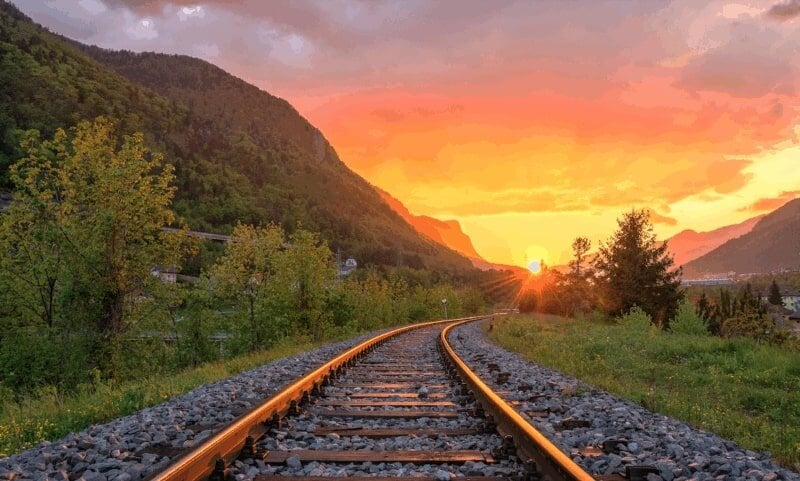Designing for Decades: TransCore’s Commitment to Reliability
Greg Blocker, Senior Vice President of International Business Development at TransCore, explains how TransCore’s focus on product durability, lifecycle support and trusted partnerships set it apart.
transcore.com

When it comes to the rail industry, the concept of longevity goes far beyond simply building something that lasts. Equipment must be designed to work reliably for the full lifetime of a system or vehicle – often 30 years or more.
Longevity matters because failures or premature replacements carry consequences. Safety can be compromised, operations disrupted and costs escalated if equipment fails to perform consistently over decades of service. Transport contracts are also built on the expectation of reliability, with operators held accountable for keeping services safe and dependable.
TransCore’s approach reflects this reality. We design RFID tags and readers specifically for demanding rail environments, with performance, safety and long-term supportability in mind.
For rail operators, the purchase price is only one part of a much larger equation. Over a system’s decades-long lifespan, total cost is shaped by:
. Reliability of equipment performance
. Ease of maintenance and repair
. Operational impact of track closures and maintenance activities
. Long-term availability of parts and risk of obsolescence
. Resilience of technology in harsh rail conditions
Our tags and readers are designed to minimise these risks. The result: fewer failures, less disruption, and lower costs over the lifetime of a project.
We see the consequences when technology built for warehouses or logistics is applied to rail. Performance can quickly degrade under harsher conditions, leading to more frequent maintenance and replacements. One rail operator in Brazil experienced this first-hand. After migrating to TransCore RFID tags, they regained the reliability required for safe, efficient operations.
By contrast, long-term partnerships show the benefits of durability and supportability. Queensland Rail in Australia, for example, first adopted TransCore’s RFID tags and readers in the early 1990s to manage freight operations. Since then, we have continually innovated and upgraded the technology, expanding its capabilities across the freight network. Decades later, that same technology continues to evolve and deliver reliable performance – evidence that focusing on lifecycle performance and customer needs builds trust and long-term value, even when lower-cost alternatives are available.
Similarly, Vale Brazil, a mining company and private railroad owner, has relied on TransCore technology for years, deploying our solutions not only across its domestic network, but also at its ports and mines worldwide. By choosing a partner focused on safety, reliability, and long-term performance, Vale demonstrates how durable technology and trusted relationships safeguard operations and create enduring value.
The right choice is the one that safeguards safety, reliability, and long-term performance. When that wider view is taken, the value of durability, support, and partnership becomes clear.
Obsolescence Management
One of TransCore’s greatest challenges is bridging the gap between the long lifespan of vehicles and the short lifespan of individual components. While systems are expected to operate safely for over 30 years, many component suppliers only guarantee availability for three years. This mismatch creates a constant risk of obsolescence that, if unmanaged, can disrupt operations and drive up operational costs.
We address this challenge head-on by embedding obsolescence management into our design philosophy. Through strategies such as lifetime component buys, stockpiling critical parts and proactively redesigning when necessary, we ensure our products remain well supported long after standard supply chains have moved on. This forward planning minimises disruption and reduces the financial and operational burden of sudden replacements.
Our systems are engineered to remain supported for decades. Naturally, technology will continue to evolve. In the rare case that a product does need to be sunset, we work closely with customers to manage end-of-life transitions, including planning upgrades and replacements.
Designing for decades isn’t just about technology – it’s about creating trusted partnerships that keep systems safe, compliant and reliable throughout their lifecycle.
Solutions for Real Operational Needs
Customer engagement is central to how TransCore develops and evolves its products. Most new requirements are driven from the top down: consultants write tenders on behalf of operators, which are then bid on by systems integrators. Those integrators then turn to us and say, “Here are the requirements – can you deliver?” This process ensures that development is always grounded in real operational needs rather than speculative innovation.
To see where our current products fit and where adaptation is needed – whether that’s a new frequency band, different power restrictions or country-specific regulations, we analyse tenders and requests for proposals (RFPs). Where adjustments are required, we incorporate them carefully into existing platforms, ensuring continuity and long-term support.
This approach reflects the realities of rail. Requirements across passenger and freight networks are broadly consistent, and the sector is cautious about disruptive change – for good reason. What matters is designing solutions that last decades, comply with international regulations and help operators avoid the pitfalls of chasing cheaper, short-term fixes.
Reliability as a Partnership
Reliability isn’t only a feature of the hardware; it’s also about the long-term support that surrounds it. True dependability comes from working hand in hand with operators and procurement teams, helping them navigate changing regulations, manage product lifecycles and plan for decades of service. That collaboration ensures technology remains safe, compliant and fully supported long after installation.
In a market often crowded with short-term fixes, TransCore focuses on the full lifecycle – building for longevity, delivering reliability, and earning trust. For rail operators, the real measure of value is performance sustained over decades. That’s why we build technology and partnerships that are designed to last the lifetime of the railway.
www.transcore.com

